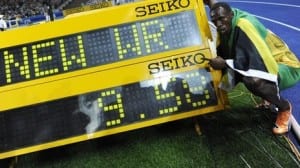Reviewing a range of literature and my coaching experience has taught me that reflecting in and on action is key to developing. Gilbert, W & Trudel, P (2006) suggested that: “The knowing-in-action, the reflection-in-action, the reflection-on-action and the reflective conversation, are what makes a practitioner different to another practitioner. However, no person is an island and as Schon (1987) states, ‘A professional’s knowing-in-action is embedded in the socially and institutionally structured context shared by a community of practitioners.”
Learning what I have done well and failed to do and self evaluation is crucial to progression in this field;
“It has been repeatedly suggested that the key to experiential learning is reflection” (Cassidy et al. 2004, Cushion et al. 2003, Gilbert and Trudel 2001).
Cassidy et al (2004) also stated that: “ten years of coaching without reflection is simply one year of coaching repeated ten times. Integrating reflection into coaching practice is the key to what termed a holistic approach to the activity.” This suggests that as a coach, without reflecting you will never progress and literally remain at the exact position you start at.

